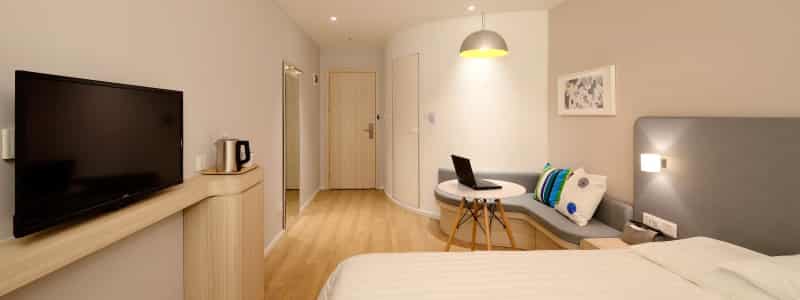Introduction
Airbnb has become increasingly popular over the past 5 years and as of 2018, it has over 150 million users worldwide and is valued at $31 billion. In Australia alone, it has over 115,000 listings. You could contribute to this growing phenomenon! Airbnb allows its users to rent out their entire property, private rooms, or shared rooms, allowing for a great deal of flexibility. Although their website claims to offer users thousands of dollars a month in income, there are still risks involved, as well as a range of requirements.
Requirements
- To start off, you will of course need a property you are willing to rent out. This may be an entire home or apartment, or even a spare room in your own house. Airbnb requires you to declare how many guests you can accommodate and provide photos of your space. They also have a rule about stationary living spaces, so no boats allowed!
- To list your property on the website is relatively easy, and free. Their community standards outline safety, security, fairness, authenticity and reliability. There aren’t many requirements regarding the types of spaces that can be rented out, but having bathroom facilities, clean living spaces, and sleeping quarters are essential.
- Rules and expectations regarding your property are largely up to you. Details of your facilities are provided by you, as well as what you expect from your guests, and what your guests can expect from you.
You will need to have appropriate safety equipment, similar to any home. This includes working smoke detectors, fire extinguishers, and first aid kits. - Being an Airbnb host is essentially a business, so you will need to comply with local laws, zoning restrictions, and administration codes. Airbnb expects you to already comply with these laws before listing your property on their website. Don’t risk a fine for being uninformed. You can find your local council and their laws here.
- You do not need to register for GST if you rent out your property via Airbnb, however you need to keep all relevant records to declare for your income tax return.
Risks
Airbnb offers basic homeowner insurance and a Host Guarantee, which has property damage cover up to $1 million. However this does not discharge you completely from liability. They do not cover damage of any property by guests that is not part of the actual listing on the website. They also do not protect against damages by pets, or cash and securities. As well as this, personal injury and property damage claims from third parties does not fall under their Host Guarantee.
Airbnb does not do extensive screening of their guests before allowing them to book with a host. This generates an element of risk because you do not know who will be occupying your property, because only basic information about guests are provided. Although the company provides protection for hosts, guests can still cause damage to property, people, or cause neighbourhood disturbances. This could affect your livelihood and reputation in your community.
Another thing to consider is the Airbnb cancellation policy. You may be subject to sudden cancellations, which means a possible loss of income for that period. Cancellation depends on the duration of the stay of your guests.
Conclusion
Airbnb is a great way to make extra income. It also doesn’t have the same demands as a full time job. It is quite flexible and easy to maintain, based on your property and time management. However it does come with risks. If you choose to list your property on the website, make sure you comply with your local council regulations and that you develop a screening process for your guests. Happy hosting!
Unsure where to start? Contact a LawPath consultant on 1800529728 to learn more about customising legal documents and obtaining a fixed-fee quote from Australia’s largest legal marketplace.






